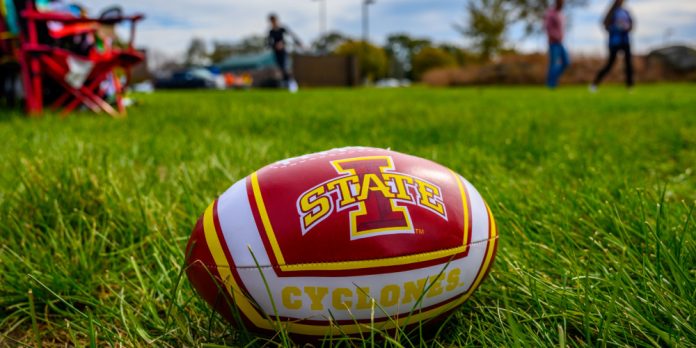Four more Iowa State student-athletes have been caught up in the college sports betting scandal at the institution as part of a statewide investigation into gambling breaches.
ISU running back Jirehl Brock as well as Cyclone football players Isaiah Lee, DeShawn Hanika and Jacob Remsburg have all been charged with tampering records relating to using somebody else’s wagering account to place bets.
As the Des Moines Register reported, the Iowa Division of Criminal Investigation’s gambling probe identified the students as being part of the gambling scandal in Iowa’s college sporting ecosystem.
Iowa State Senior Athletics Director, Nick Joos, said: “Since becoming aware of potential NCAA eligibility issues related to sports wagering by several of our student-athletes back in May, Iowa State University has been actively working to address these issues with the involved student-athletes, and that process remains ongoing.
“We will continue to support our student-athletes as our compliance staff works with the NCAA to sort out questions surrounding their future eligibility for athletics competition.”
Earlier this month, ISU quarterback Hunter Dekkers was charged for tampering with records as part of the division’s investigation. Dekkers, and therefore others in the investigation, could face jail time if found guilty of the alleged crimes.
The players are accused of using other people’s accounts to place bets and some of the accused wagered thousands of dollars in the process.
Court documents reveal that Brock is alleged to have placed over 1,300 bets worth over $12,000, whilst Lee placed 115 bets, including on his own team, worth $885. Notably, Lee was also caught allegedly betting on his own team to lose.
Hanika has been accused of wagering 70 times on ISU basketball fixtures worth over $1200.
Earlier this summer, the NCAA updated its guidelines when it comes to breaches of its betting rules, outlining that those who wager more than $800 face a loss of 30% of a season of eligibility, plus rules and prevention education.
The new guidelines, which were revised dating back to May 2, also stated: “For cumulative wagering activities that greatly exceed $800, NCAA reinstatement staff are directed to consider whether additional loss of eligibility, including permanent ineligibility, are appropriate.”














